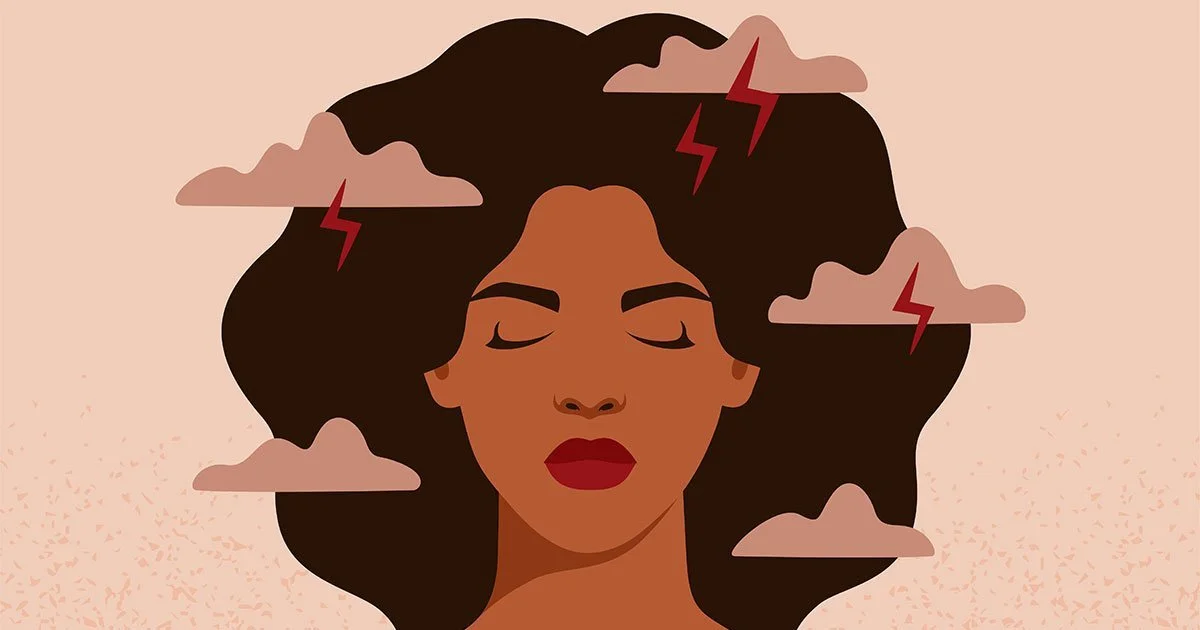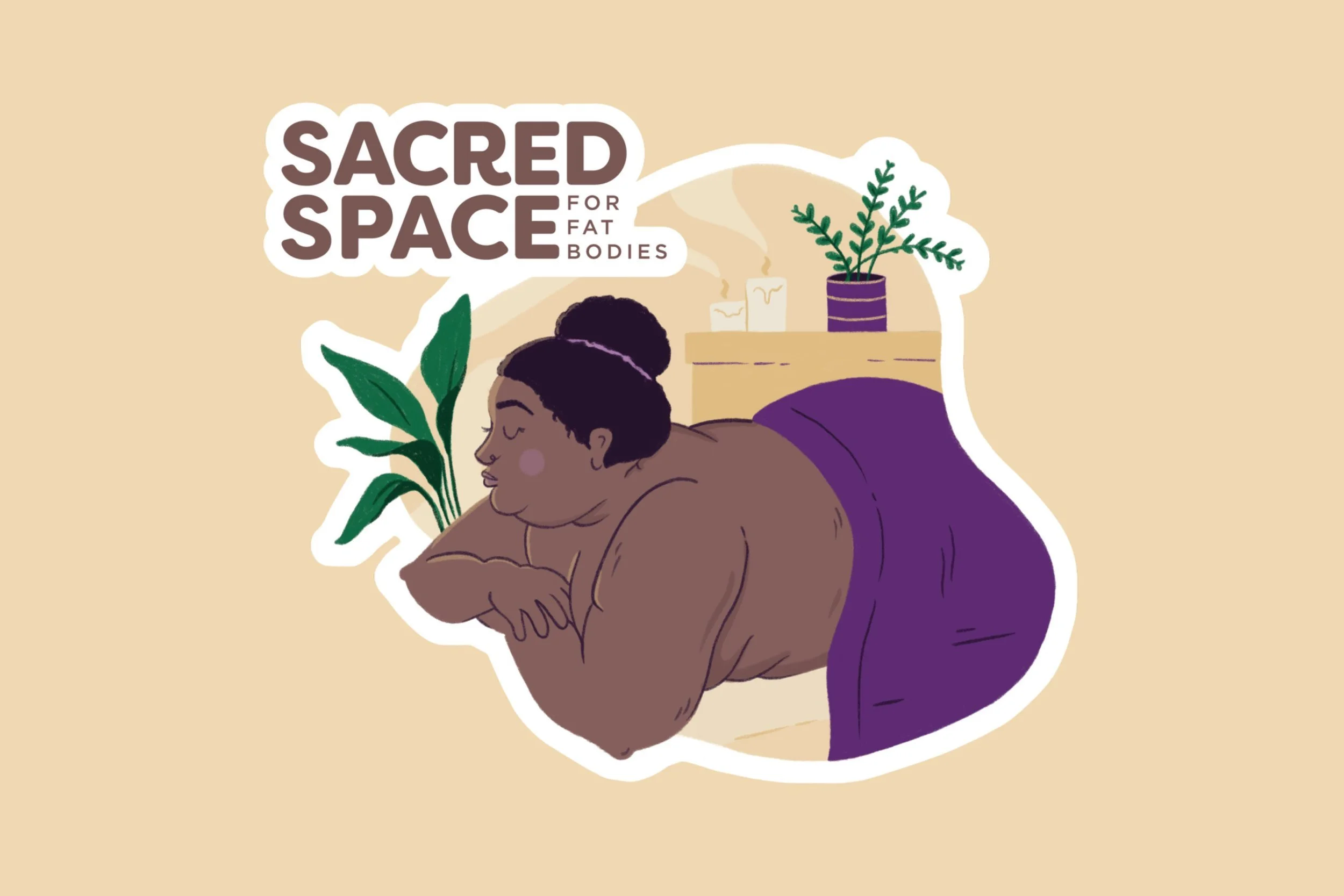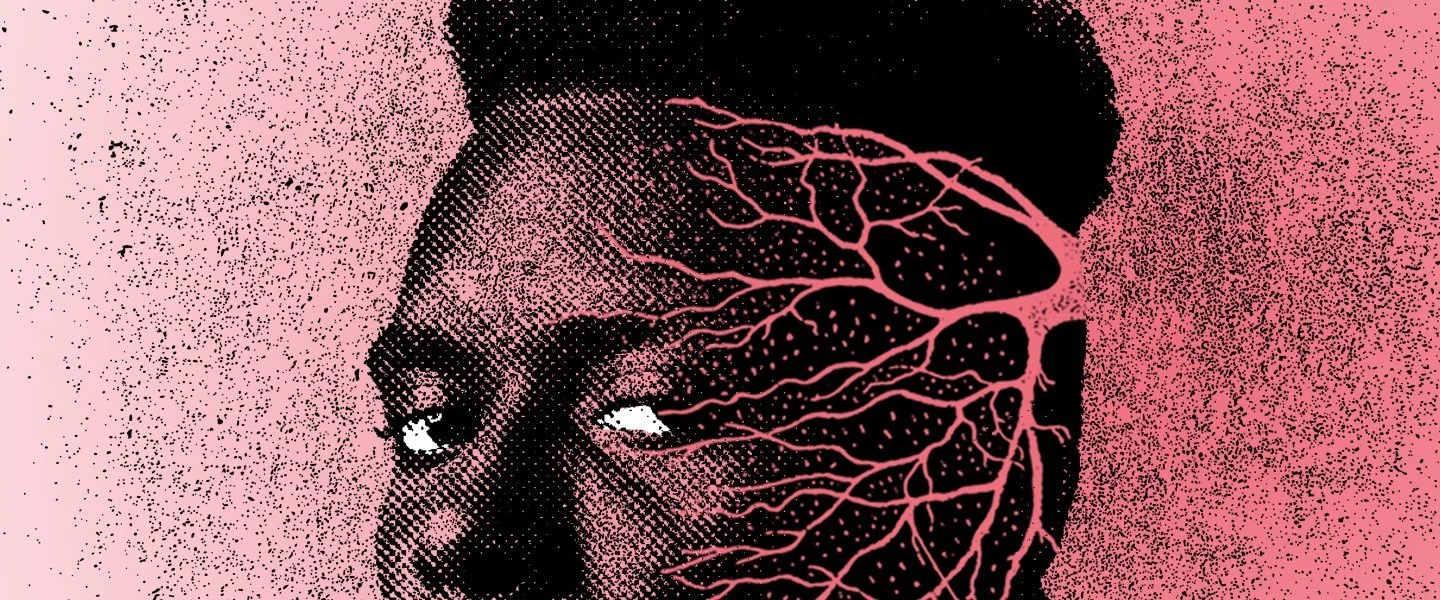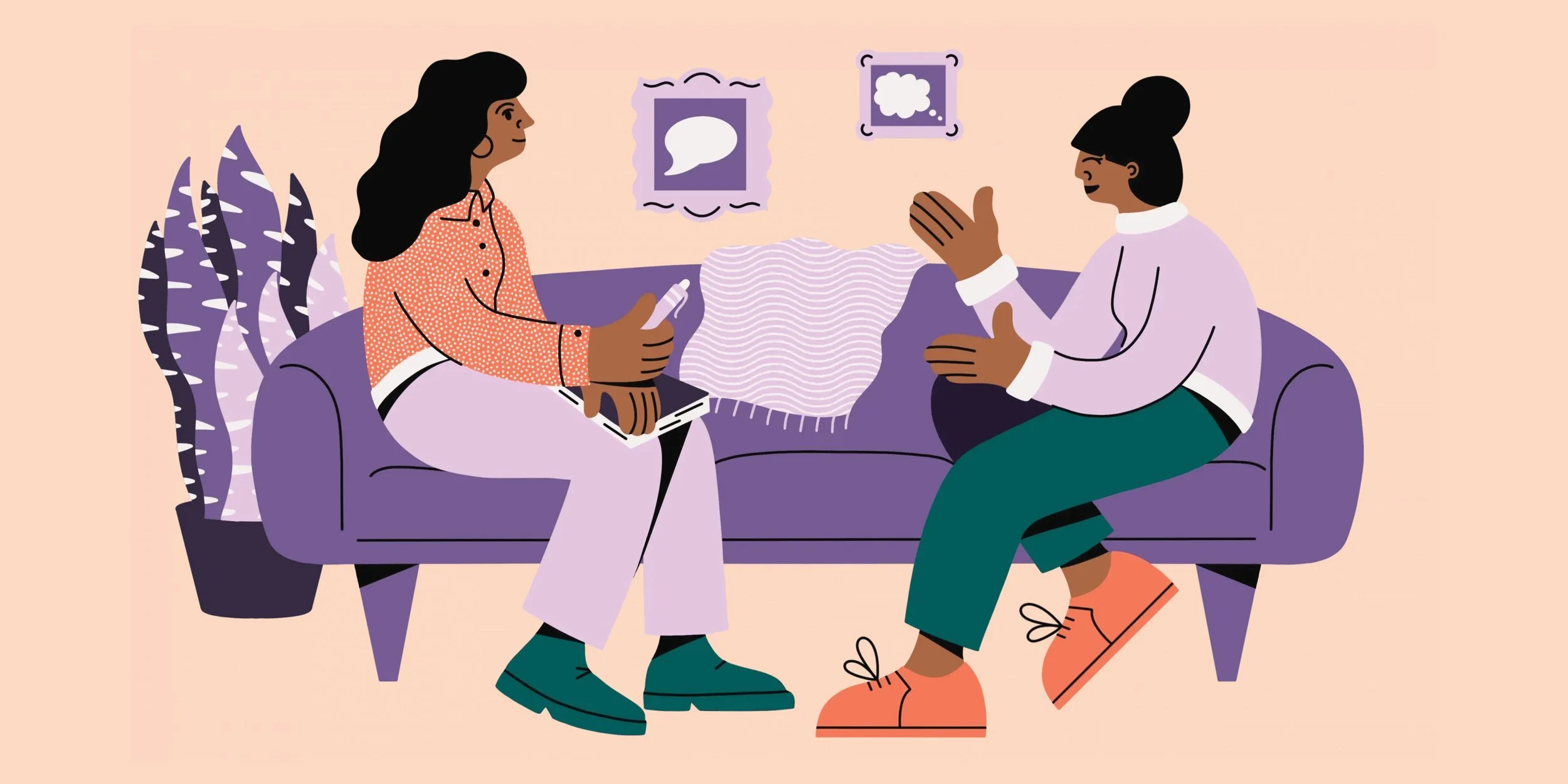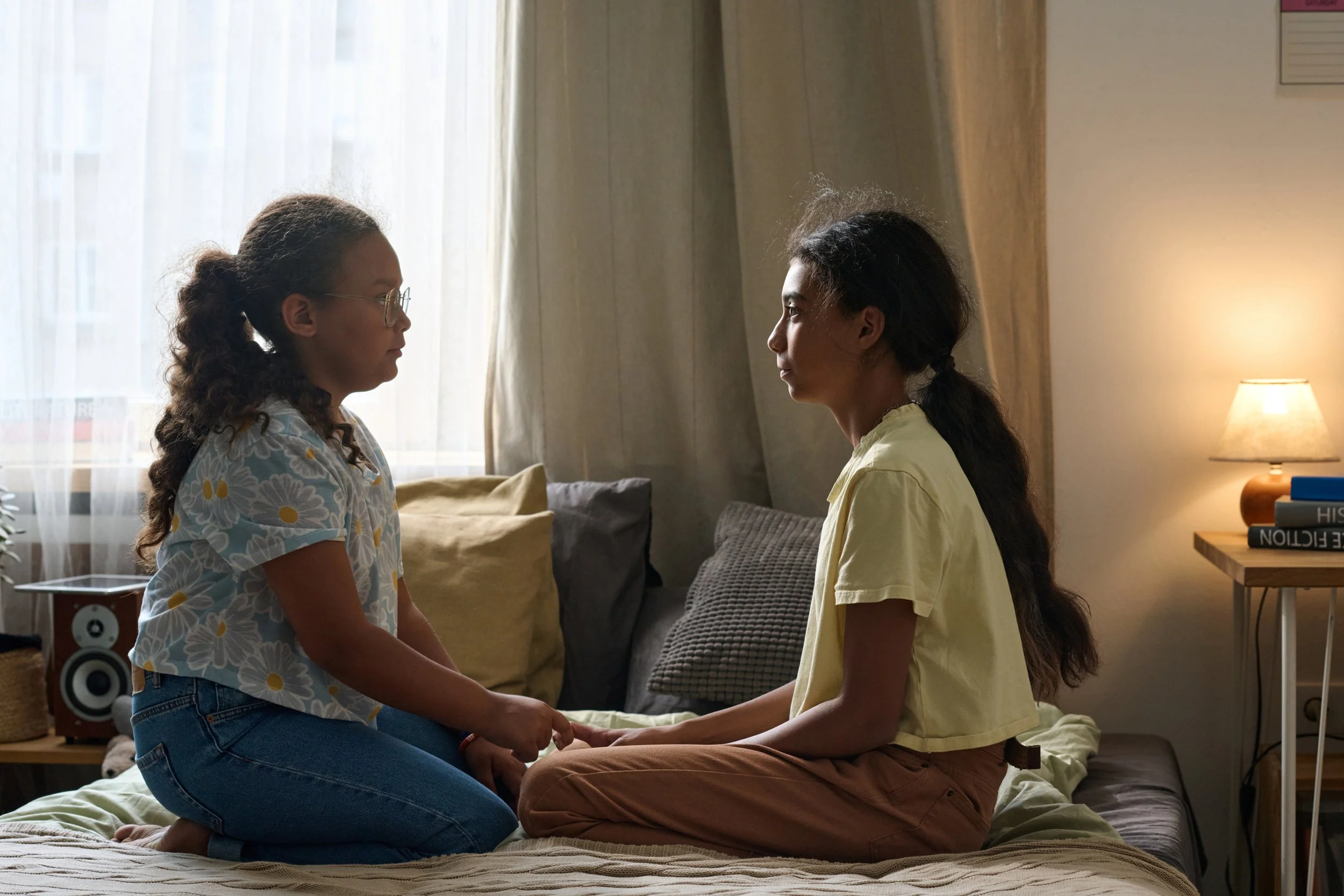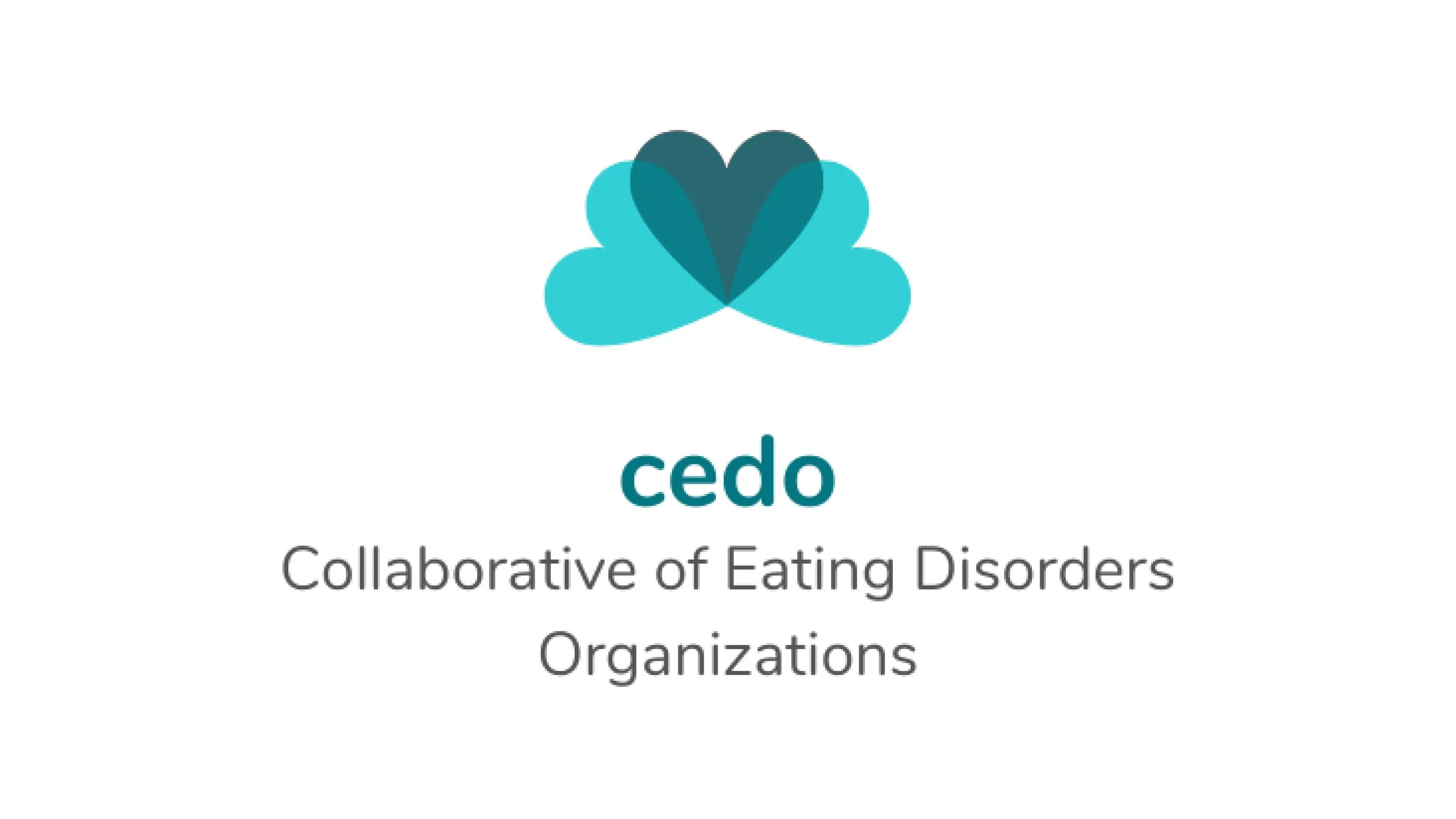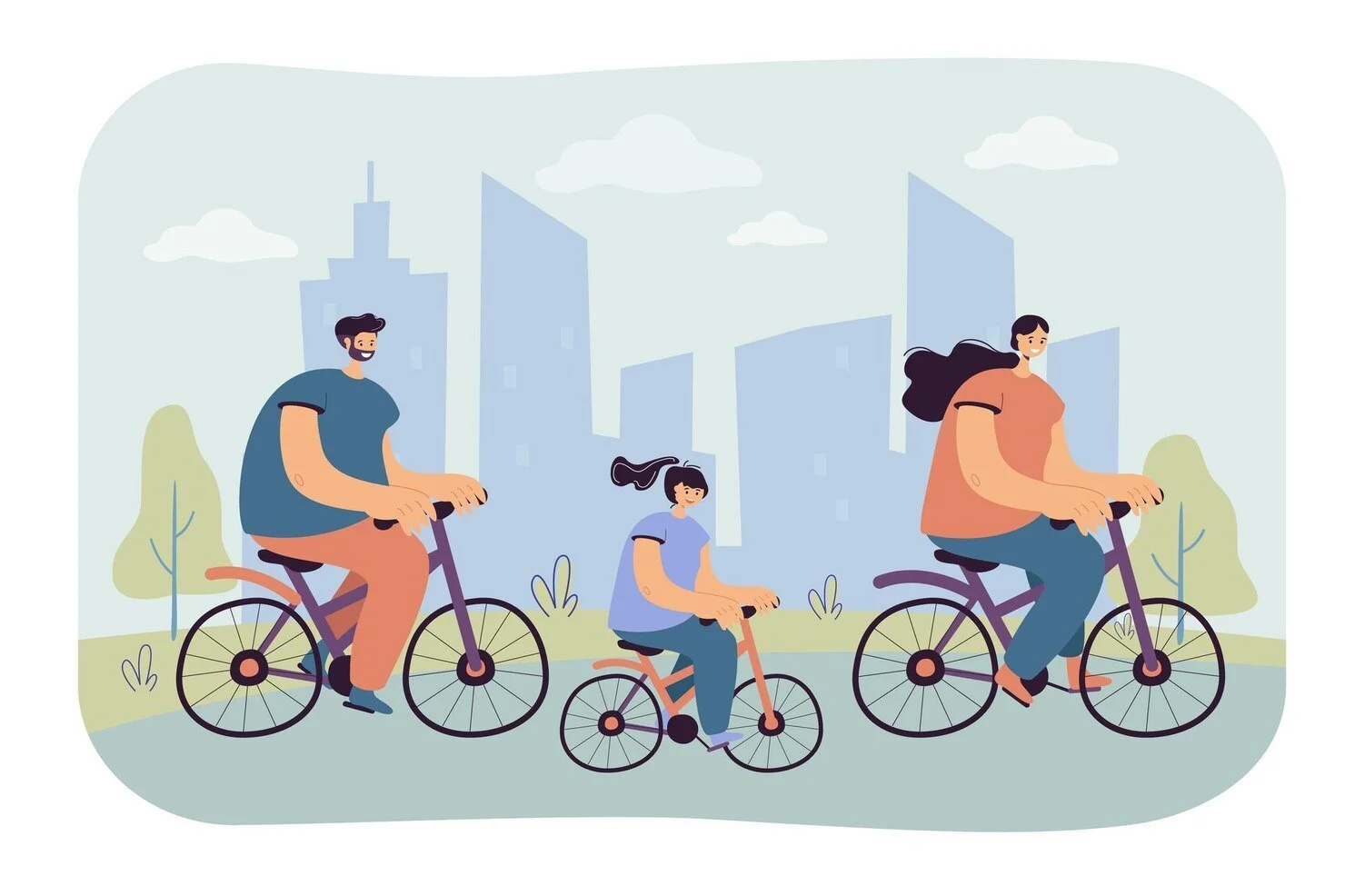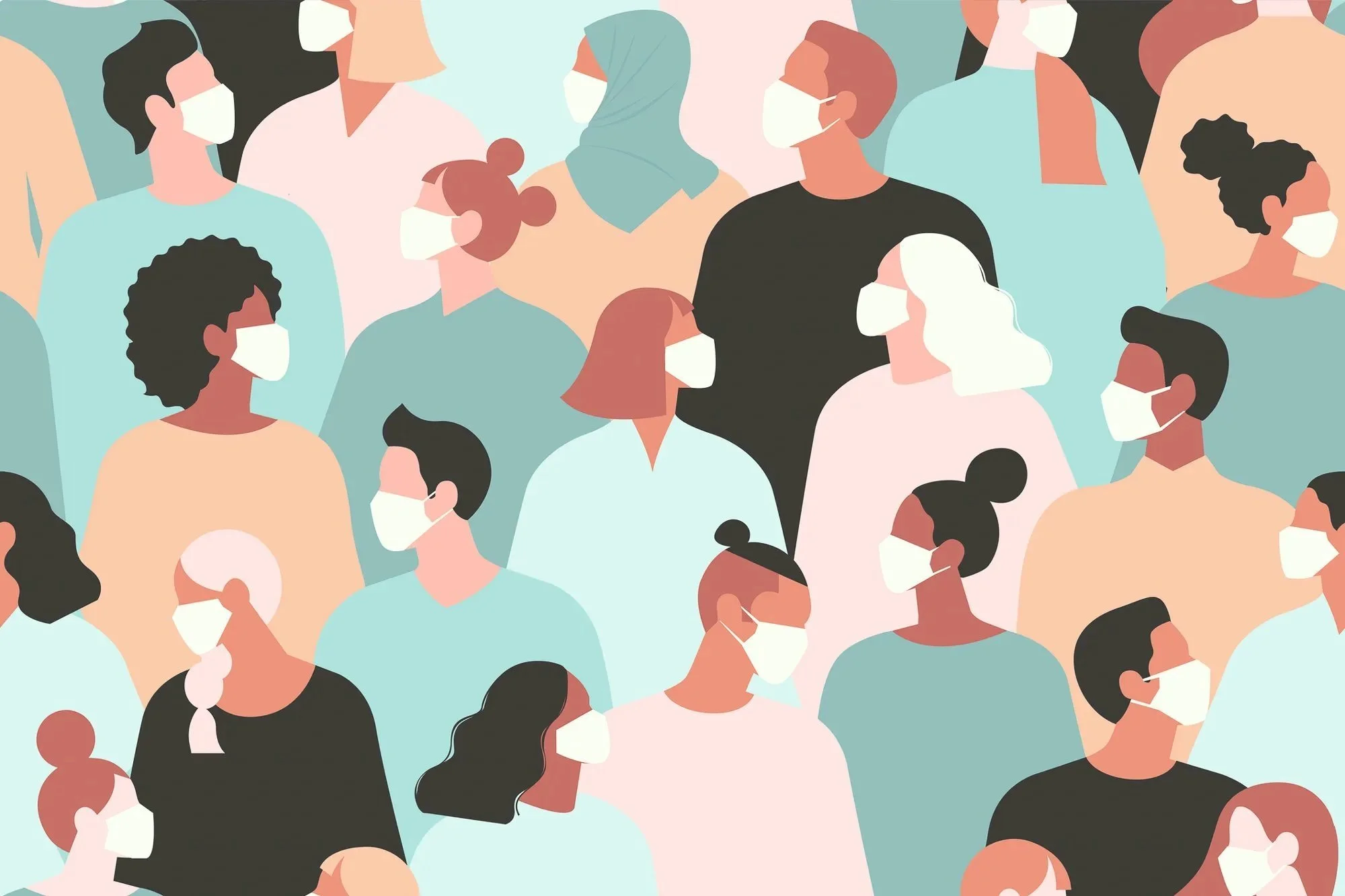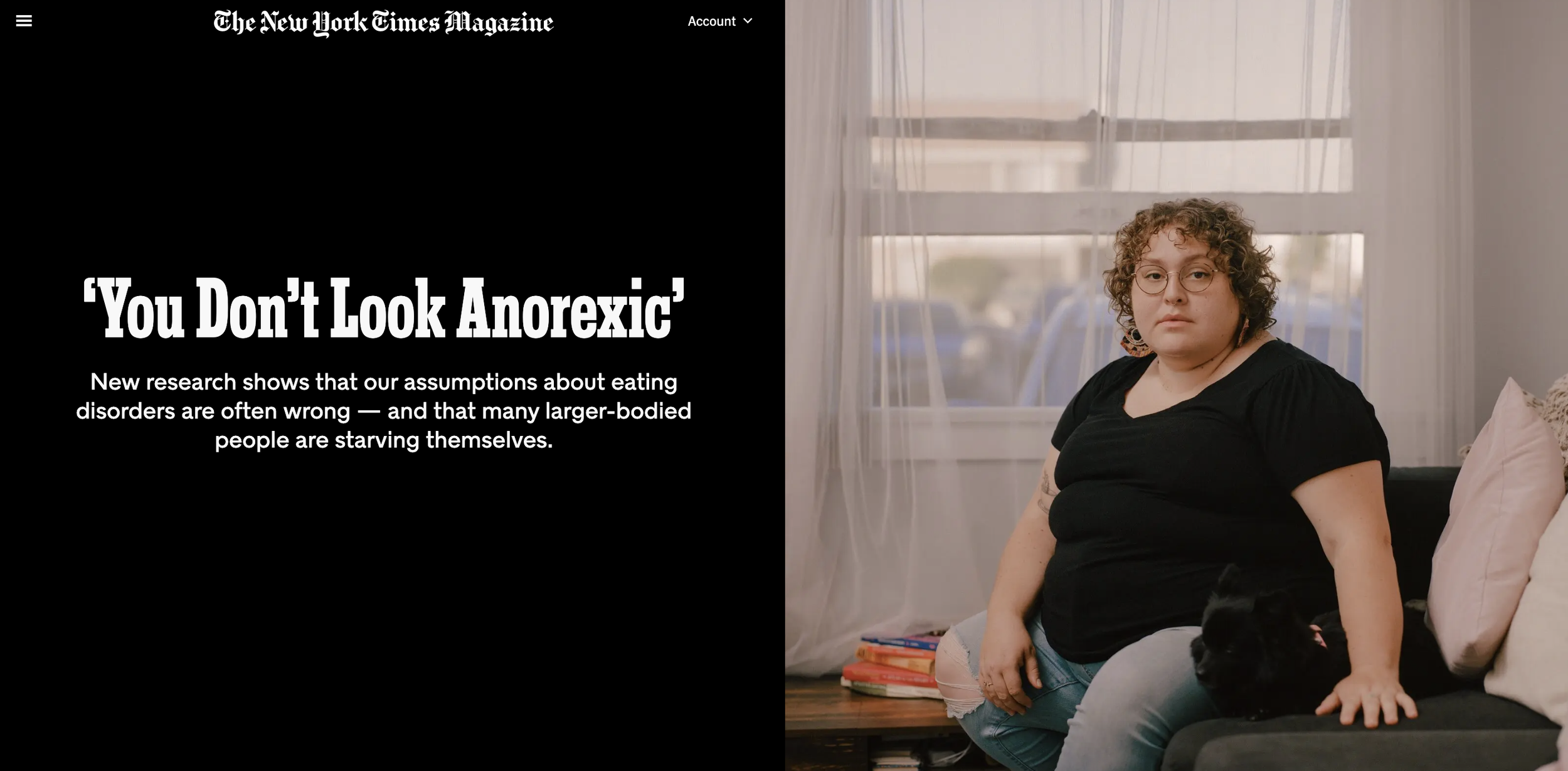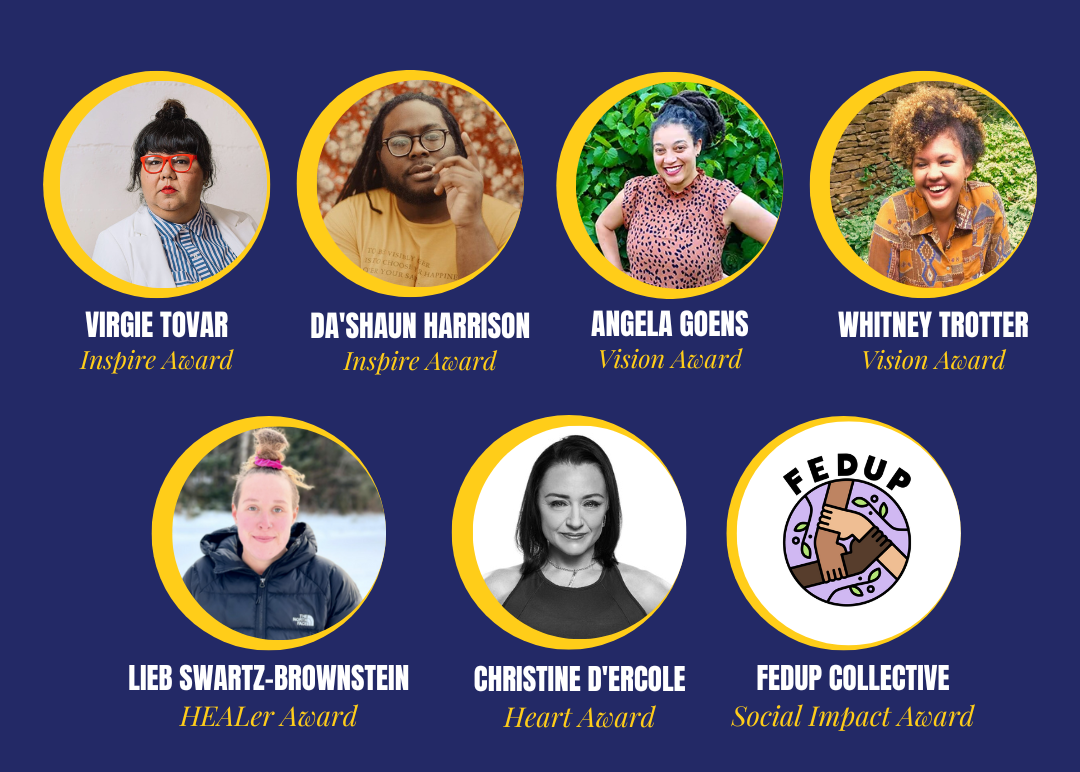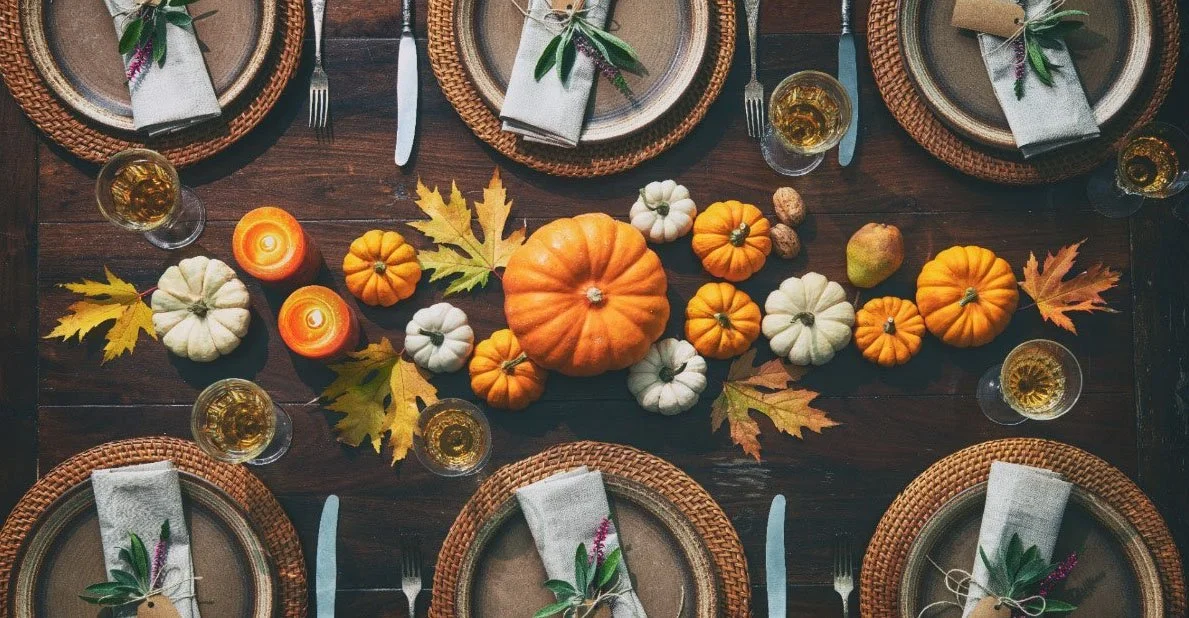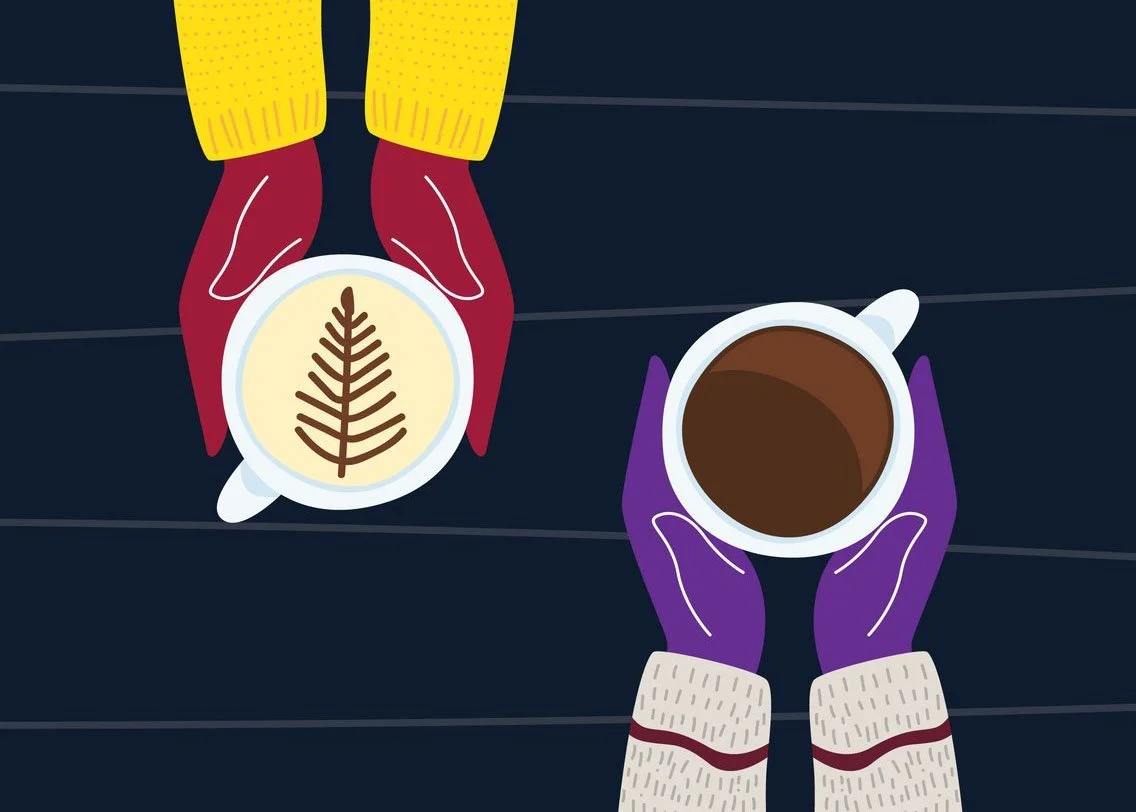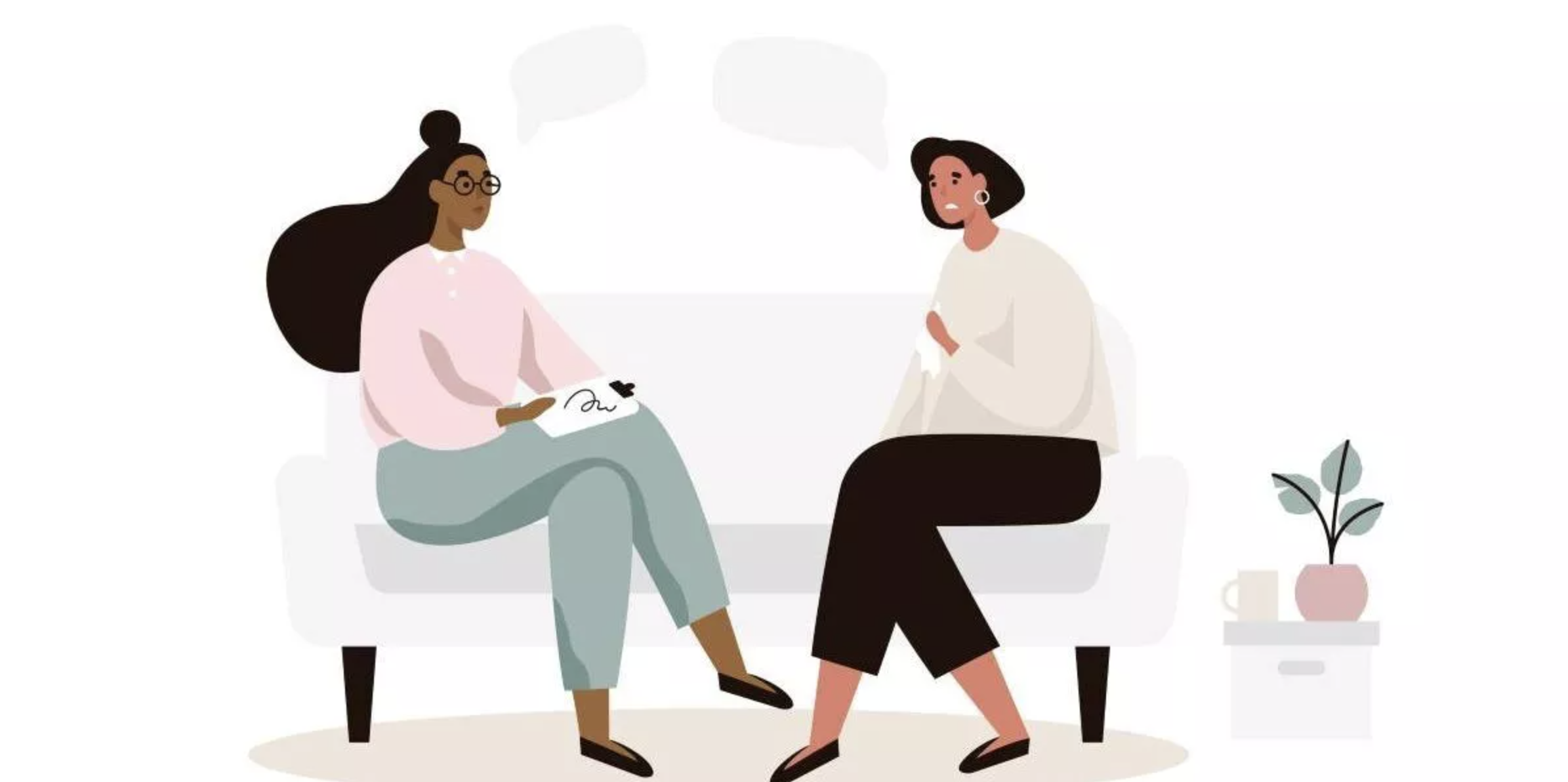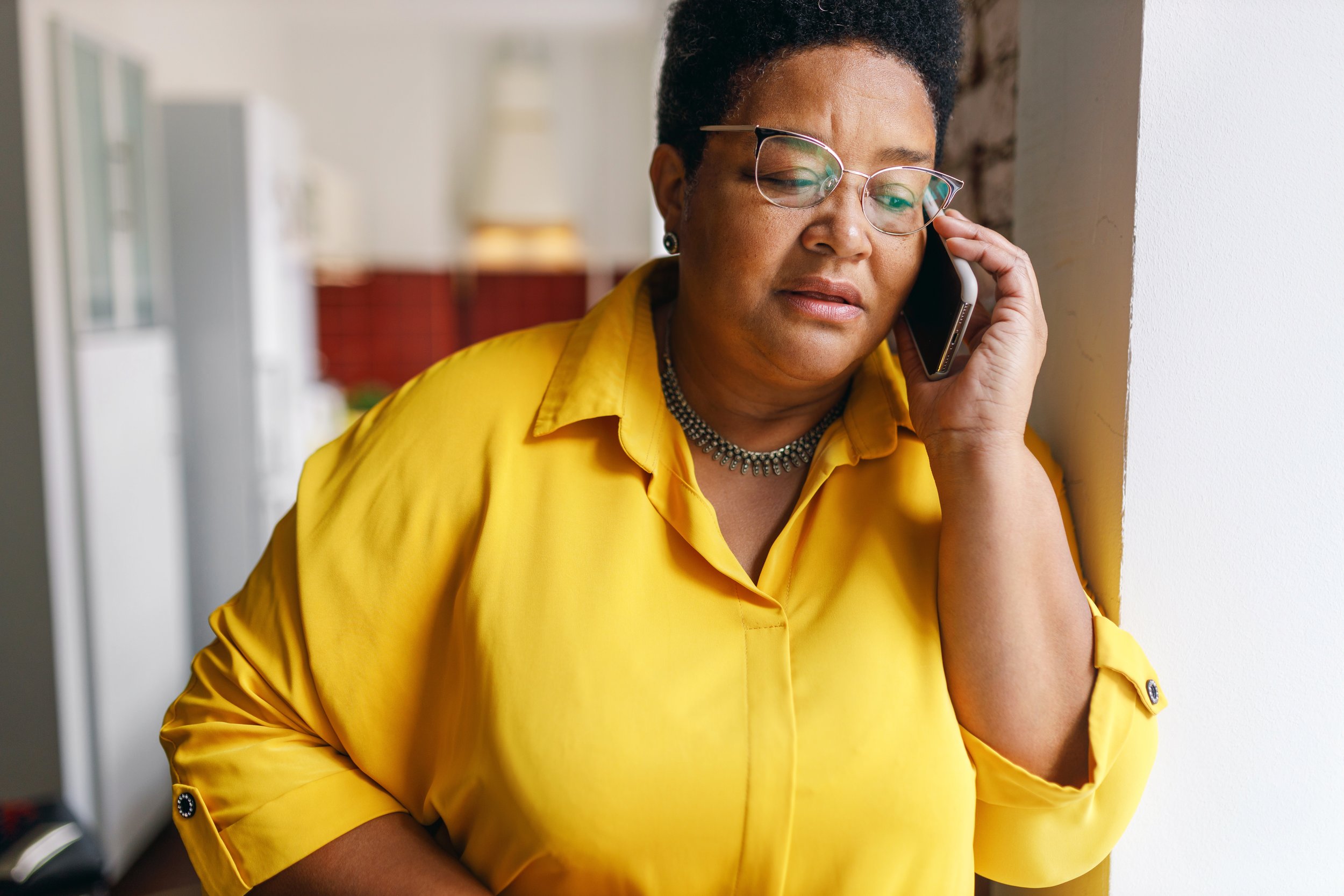Dear Fat, Black Girls Who Were Not Spared from Diet Culture — I Understand
Jess Sims interweaves history, research, and personal experience to explain how racist stereotypes and anti-Black fatphobia result in frequently ignored eating disorders among Black women.
CEDO Responds to NEDA's statement on the AAP's new Treatment Guidelines
As the Collaborative of Eating Disorders Organizations (CEDO), we are disappointed by the recent statement released by the National Eating Disorders Association (NEDA). Their statement expressed concern about - but notably did not oppose - the American Academy of Pediatrics’ (AAP) new guidelines for treating childhood “obesity,” which recommend extreme weight loss measures like medication and bariatric surgery for children as young as 12 and 13 years old.
Fat Liberation’s Missing Ingredient
Angel Austin, the Black, Infinifat, and disabled founder of Sacred Space for Fat Bodies, talks about her journey to body liberation and how the movement still has work to do to prioritize the most marginalized.
Raising Eating Disorder Awareness Among Black Populations as a Way of Enhancing Recovery
Seye Akinyemi challenges the stigma and stereotypes surrounding eating disorders in Black men and provides recommendations for enhancing diagnoses, treatment, and community support.
Values, the ‘New’ New Year’s Resolutions
Melissa Gerson, LCSW breaks down Acceptance and Commitment Therapy (ACT) and guides the reader through an exercise to help determine their values.
From Sister to Stranger
Watching a sibling descend into an eating disorder can be really scary. Our writer shares about watching their sister begin to struggle, and how their subsequent involvement with Project HEAL helped to support her healing.
Opposing New Clinical Guidelines from the American Academy of Pediatrics
As a member of the Collaborative of Eating Disorders Organizations (CEDO), Project HEAL strongly opposes the new clinical guidelines introduced by the American Academy of Pediatrics. We do not support intentional weight loss in children via the methods included in the guidelines, especially the recommendation of bariatric surgery and pharmaceutical products for children.
The Journey to Freedom
Ellen Tuzi shares about her journey towards recovery and how she teaches her kids to have a positive relationship with food and their bodies.
Eating Disorder Cases Rose During the Pandemic, But They’ve Been Costing Governments Billions for Decades
Megan Bazzini dives into the global stats of the eating disorder crisis and calls for governments worldwide to abandon fatphobic ob*sity prevention funding in favor of eating disorder and HAES-based focuses.
Recovering Loudly and Largely
Sharon Maxwell reflects on the experience of having her anorexia recovery story published in the New York Times.
2022 in Reflection: A Letter From Our CEO
Read about Project HEAL in 2022 from our CEO Rebecca Eyre
Project HEAL Reveals 3216% Increase in Community Support at Annual Gala and Announces 2023 Eating Disorders Awareness Week
Project HEAL, the leading nonprofit in the U.S. focused on equitable access to eating disorder treatment, held its annual gala last Thursday, December 1st, at the Kimpton Hotel Eventi in New York City.
Unequitable Barriers to Eating Disorder Treatment are a Global Problem
Eating disorders are costing governments billions worldwide. Megan Bazzini dives into the stats and shares how her time in Italy helped her to choose recovery.
5 Tips for Attending Thanksgiving Gatherings in Eating Disorder Recovery
Thanksgiving and the December holidays can be a particularly difficult time for folks who are in recovery for an eating disorder. Tara Criscuolo provides 5 tips for how to survive food-centered gatherings.
How Military Service Fuels Eating Disorders
Veteran Mike Urban reflects on how the training service members receive in the military helps to keep them alive, but also often creates disordered eating habits.
Quitting the Shame Game
After receiving harmful care at a California residential treatment facility, this author bravely shared their story to help others heal from similar experiences.
Caramel Macchiatos and Courage in Recovery
Hannah Lazerowitz found parallels between her relationship with coffee and her relationship with herself as she descended into an eating disorder. She speaks to the lessons she learned while writing from a cozy café.
The Internet: Friend or Foe?
Anne-Claire Jedrzejczak talks about how the internet can either be very helpful or harmful for your recovery, and shares the boundaries she’s developed to ensure it’s supportive of your healing.
The Myth of Non-Compliance
This week’s author shares their experience as a “revolving door patient” who was shamed for their relapses instead of being met with the support and understanding they desperately needed.
For All of Us
Ashley Beck shares her Project HEAL story about how she got help when she needed it. She faced many barriers to receiving care, including complications with insurance and finances, and eventually started healing in August this year.
SUBMIT A GUEST BLOG
Project HEAL would love to share any and all stories that are aligned with our mission, vision and/or values. If you have struggled with an eating disorder, have experienced and/or overcome barriers to accessing treatment, or are an ED provider and/or recovery advocate — we want to hear from you!
We are especially interested in sharing stories from voices often excluded from and/or underrepresented in the eating disorder recovery community. Submitting a blog proposal does not necessarily guarantee publishing — we reserve the right to respond with proposed edits (for your approval) or pass on publishing your proposed content.
Thank you in advance for wanting to share your story with us and our community!


